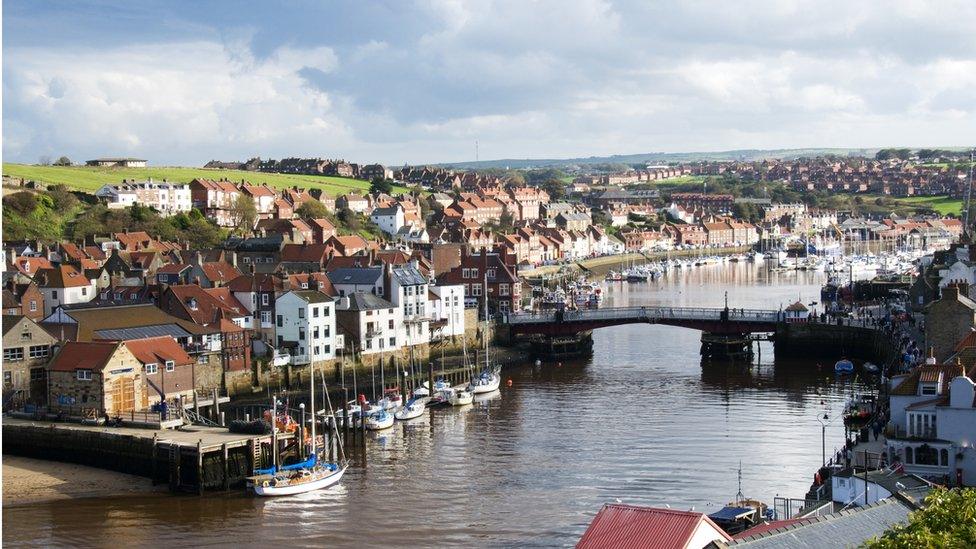Plan to cut Whitby storm overflow discharges into River Esk
- Published

The scheme aims to reduce the amount of waste water entering the river Esk in Whitby, Yorkshire Water says
Work to reduce discharges from a storm overflow into the river Esk in Whitby will get under way in the new year, Yorkshire Water has confirmed.
The company said it was to invest £1.3m in the scheme in a bid to separate surface water from waste water.
It said the project would mean rain and surface water would be taken straight to the sea without being combined with waste water.
The firm said it had committed £180m to cut sewage leaks from storm overflows.
In May, Yorkshire Water's chief executive Nicola Shaw apologised to customers, saying it should have "acted more quickly" to address the issue of sewage being discharged into the region's rivers.
The scheme in Whitby would include a new surface water system which would be disconnected from the combined sewer and would reduce the need for discharges via the storm overflow during heavy rainfall, according to the company.
'Improving water quality'
Omair Khan, project manager at Yorkshire Water, said it would be one of the first projects to be delivered as part of the planned £180m investment.
He said the scheme in Whitby would "dramatically" reduce discharges.
"Tackling storm overflows is a priority for us and this project is just a small part of our wider plans, which have been submitted to Ofwat for approval, to invest a further £1.4bn to reduce discharges into rivers and seas by 2030," he said.
Richard Flinton, chief executive at North Yorkshire Council, said he welcomed the plan.
"We hope it will be beneficial to improving water quality through the year, helping Whitby's tourist credentials and the marine environment," he said.
According to Yorkshire Water, the work in Whitby would begin in the near year and would take place on Esplanade, North Terrace, White Point Road, North Promenade and Argyle Road.
It would see the installation of new surface water sewers, manholes and would involve the rerouting of highway drainage.
Some temporary road closures and diversions would be necessary and the work was expected to take 12 weeks to complete, the firm added.

Follow BBC Yorkshire on Facebook, external, X (formerly Twitter), external and Instagram, external. Send your story ideas to yorkslincs.news@bbc.co.uk, external.
- Published2 October 2023

- Published18 May 2023
